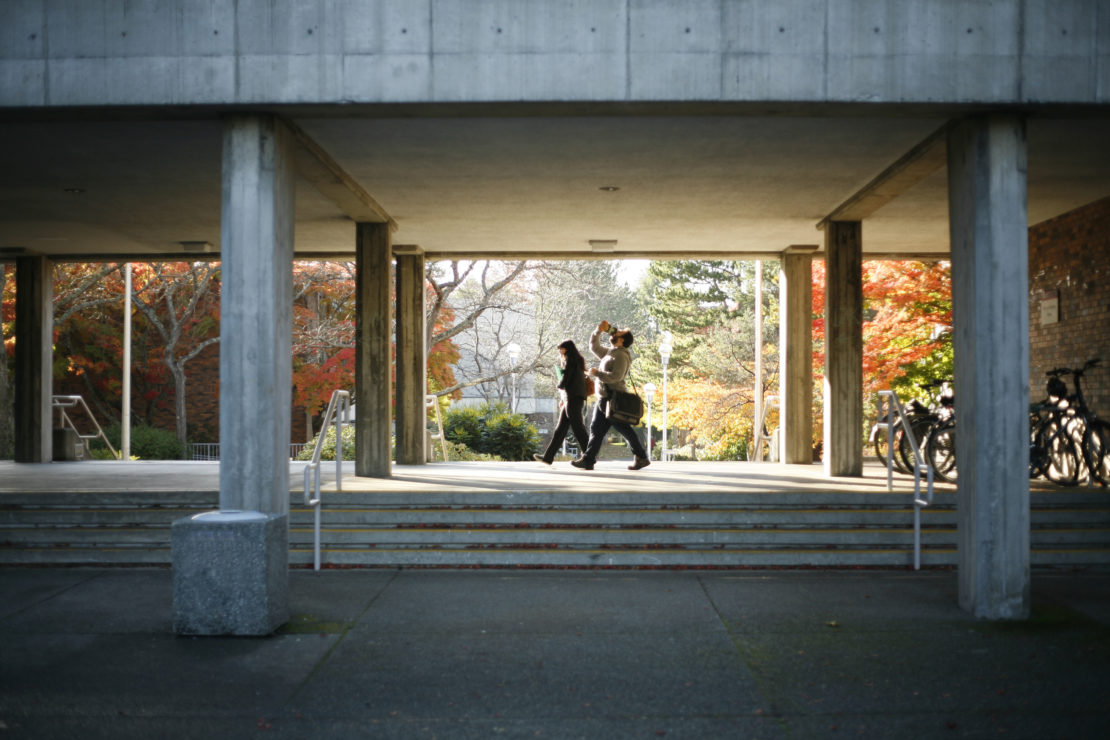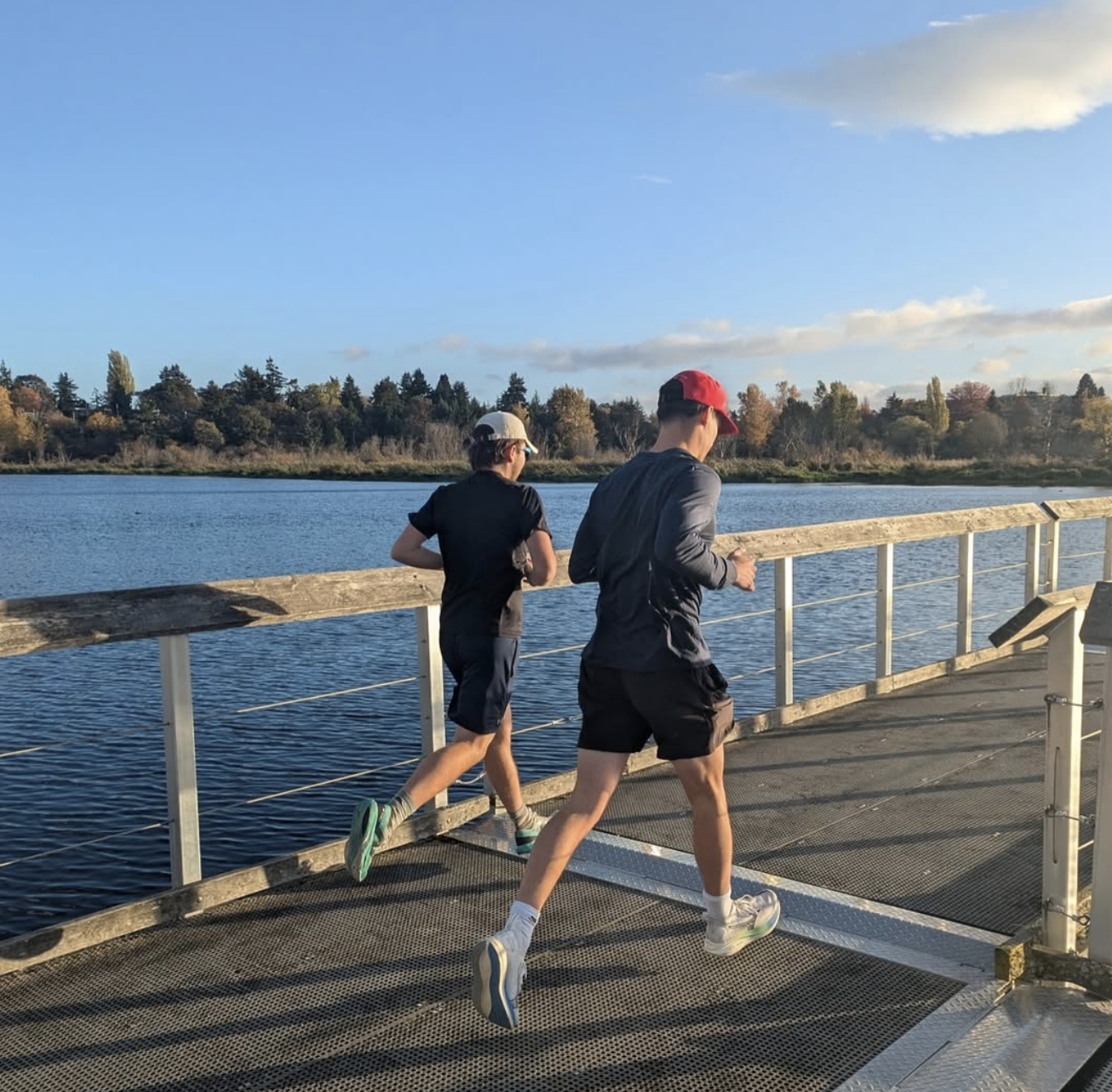
Welcome to UVic, I’m here to be your unofficial — and definitely not UVic-endorsed — tour guide. Before you join the rest of your freshman class on the quad for a socially awkward and overwhelming day of orientation, allow me to fill you in on the things you really need to know about UVic. I can’t guarantee that you’ll love it here, but my tips will make these next few years a little bit more bearable as you grind your way through a degree.
1. Keep in mind that that you’re in charge of your degree, not UVic.
An academic advisor is just that — an advisor. They can and will tell you what courses you should take to graduate with the degree you’ve chosen. With that said, here is something you absolutely must know: many students do not finish in four years, and many switch their degree. I’ve switched mine three times. While it can be tempting to fly through university in four years and take five courses a semester, it is difficult for some students to do that while maintaining their mental health and taking advantage of opportunities like co-op (a work term for a company in your field of study) or extracurriculars. You are in charge of how many courses you want to take and what you want to study — use that to your advantage.
2. Learn how to write a good, professional email.
During your university career, you’ll likely end up emailing profs, academic advisors, co-op staff, and executives of clubs. If you know how to write a good email, you’ll get a good response and introduce yourself on a professional note. There’s a lot of resources online about this, but in general, you should start with “hello” or “good morning” and offer a small-talk style greeting like, “I hope this message finds you well.” If it’s a professor, introduce yourself briefly and tell them what class you are in. Profs usually teach multiple classes, with hundreds of people in each lecture, so don’t be alarmed if they don’t know who you are — or simply know you by your V-number. After you’ve said what you need to say, thank them and sign off with something like “best” or “kind regards.”
3. Take advantage of everything.
University is good for a few things, but the piece of paper you receive at the end is relatively worthless. If you want to be successful post-grad and enjoy yourself during your degree, you should use university as the resource it is. Take full advantage of the learning support, extracurricular opportunities, and chances to meet new people. There are also lots of events with free food throughout the school year — don’t miss out on these. If you fancy free pizza, come to the Martlet office on Tuesdays at four and volunteer for copyediting.
4. Campus food sucks.
It’s seriously so subpar. You can find some decent food, but there are so many great restaurants in Victoria that it’s really not worth your money to cash out on wraps from Mac’s or banana bread at Biblio Cafe every day. Thankfully, there is always the Tim Hortons in the basement of the SUB.
5. If you don’t have anything valuable to add, don’t say anything at all.
Some classes at university have participation marks. Usually, there’s not a clear rubric for how you get better grades on participation. That being said, do not raise your hand 20 times a class. Long personal stories about something that happened to you in third grade are usually not relevant to a fourth year seminar on the European Union. And if you’re too shy to participate, approach your professor about it or go into office hours to show you care about the class. I still write my questions or points down before I say anything out loud in class, just to make sure that I have something to reference if I start losing my point.
6. Take electives to broaden your interests.
It’s tempting to take electives that are basically offshoots of your major, like classes in Sociology if you’re in Gender Studies or classes in Geology if your major is Biology. Especially in your first and second years, it’s an excellent idea to take electives unrelated to your major. You will really only benefit from expanding your field of interest, and challenging yourself to get out of your academic comfort zone. (On that note, I’ve been in way too many Gender classes where there are very few men. It’s a really good idea for everyone, men especially, to learn about the patriarchy and Kimberly Crenshaw’s intersectionality theory.)
7. Walking around UVic is a skill in and of itself.
While you’re walking around campus aimlessly trying to find wherever your class is, remember to look out for bikes, let a couple cars go by before you and twenty other pedestrians cross Ring Road. Although UVic will tell you it takes 10 minutes to get across Ring Road, you will have to sprint to get from the SUB to the Fine Arts building in that time — some of the staff at the Martlet do that run a few times a week.
8. You don’t have to love UVic unconditionally.
It’s easy to be amazed by this university; the greenery, the beach down the road, and the many on-campus services make it a pretty ideal place to go to school. Although we’re lucky to be here, UVic does have its issues. For instance, we’re all pretty sure they killed a bunch of rabbits one reading break, even though students protested that decision. Last year students protested against the university raising incoming international student’s tuition for the second consecutive year and investing in fossil fuels. You should know what the UVSS is, since it operates with $14 million of student fees. Ditto for the UVic Senate and the Board of Governors, which governs the university’s academic and administrative decisions respectively. Try your best to stay informed about on-campus issues (the Martlet is a good place to start) and think critically about the university and academia.
9. Welcome to university, kid, you know nothing.
University doesn’t actually teach you much, it just gives you questions to ask and the tools you need to give answers. Your answers, though, only lead to more questions. That’s how they keep people around to do Masters and PhDs — every student graduates with a piece of paper and a head full of new questions about the world.
10. Enjoy these years, and don’t stress too much about the rest of your life.
It’s worth noting that your grades in University may not really matter after grad, depending on what path you decide, so stressing about one C in your first year is not worthwhile. “What are you going to do after grad” is an intimidating question for most people, and most of us do not have our lives figured out. The best way I stopped worrying about making the right career and life choices was knowing that I had the resilience to start over, and I knew I would never be happy settling for something that I didn’t like.
Whatever happens over these next few years, I hope you learn something that excites you and flips the way you view the world. I hope you meet supportive and genuine people, and I hope you find success, however you define it.








